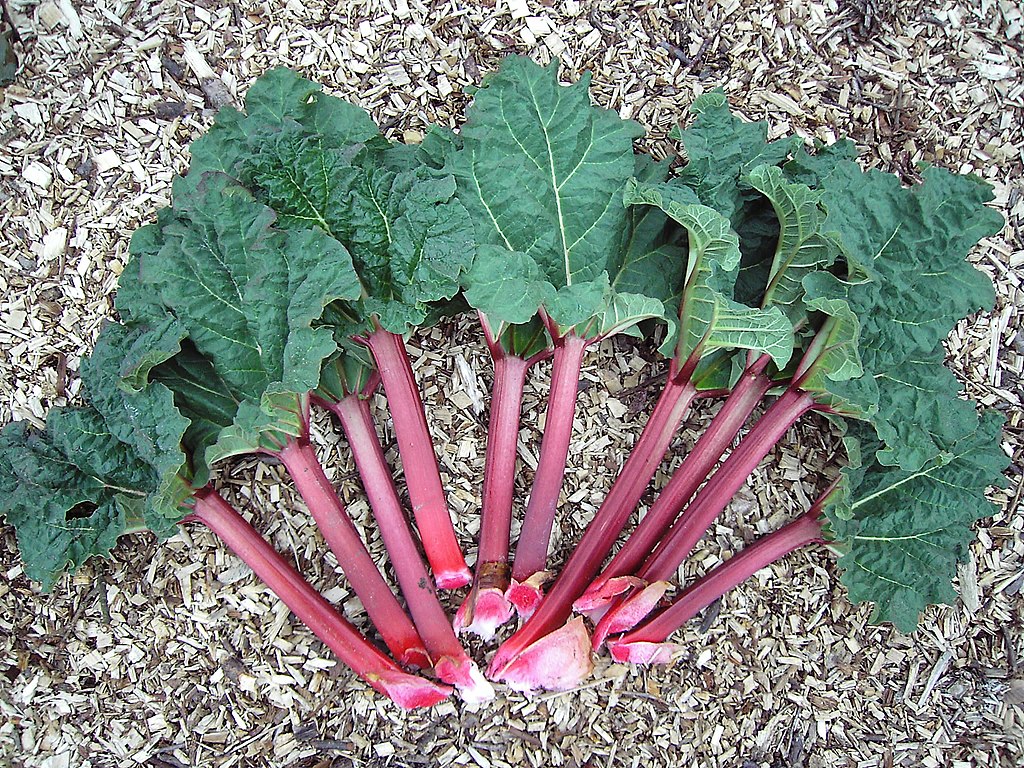Recently, we were in the canteen at work and a colleague, who moved here a few years ago, told that she never had rhubarb before.
Then she asked me, probably just for vocab reasons: Rhubarb is a vegetable?
Uhh…
I had never thought about it. I mean, what the heck is this:
Could be a salad, a leafy green. It’s kind of similar to celery, but is celery even a vegetable? Well, and of course, rhubarb is often used like a fruit, so uh…
Well, I looked it up, and scientifically, it does count as a vegetable, but colloquially, it’s often considered a fruit.
Like today’s computer scientists, early biologists sucked at inventing new words, and simply reused existing ones. “Berry” in common language is a small, usually sweet and edible, fruit. Strawberries, blueberries, blackberries and raspberries are all berries.
Then biologists came along and decided, actually, strawberries, raspberries and blackberries are out, but watermelon and bananas are in, because the size of the fruit doesn’t matter, only the placement of the seeds decides whether something is a proper, scientific berry.
A similar thing has happened with “fruit” and “vegetable”, where scientific fruits include cucumbers, eggplants, and pumpkins. Luckily, all three of these are also berries.
I say we ignore them, and use words to mean sensible things.
Or we move on with our lives and accept that fruit don’t have to be sweet and vegetables don’t have to be savory. Life is beautiful and nature constantly challenges expectations.
Recently, we were in the canteen at work and a colleague, who moved here a few years ago, told that she never had rhubarb before.
Then she asked me, probably just for vocab reasons: Rhubarb is a vegetable?
Uhh…
I had never thought about it. I mean, what the heck is this:

Could be a salad, a leafy green. It’s kind of similar to celery, but is celery even a vegetable? Well, and of course, rhubarb is often used like a fruit, so uh…
Well, I looked it up, and scientifically, it does count as a vegetable, but colloquially, it’s often considered a fruit.
Rhubarb is pretty weird, especially for people who grew up where it’s not a thing.
Like today’s computer scientists, early biologists sucked at inventing new words, and simply reused existing ones. “Berry” in common language is a small, usually sweet and edible, fruit. Strawberries, blueberries, blackberries and raspberries are all berries.
Then biologists came along and decided, actually, strawberries, raspberries and blackberries are out, but watermelon and bananas are in, because the size of the fruit doesn’t matter, only the placement of the seeds decides whether something is a proper, scientific
berry.A similar thing has happened with “fruit” and “vegetable”, where scientific
fruitsinclude cucumbers, eggplants, and pumpkins. Luckily, all three of these are alsoberries.I say we ignore them, and use words to mean sensible things.
Or we move on with our lives and accept that fruit don’t have to be sweet and vegetables don’t have to be savory. Life is beautiful and nature constantly challenges expectations.